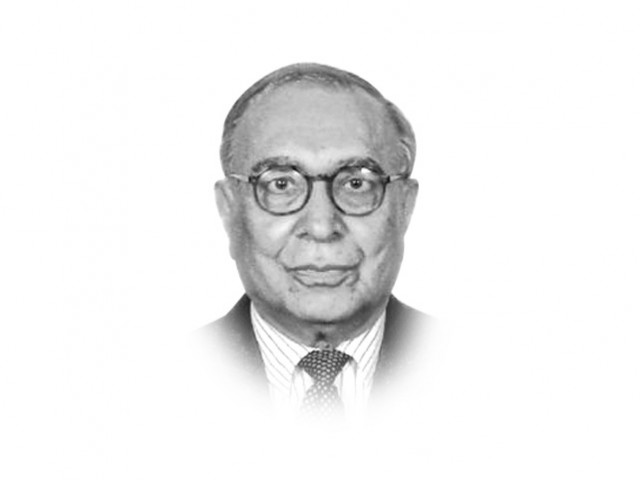Gratuitous offence
In India, Hillary chose to add to her repertoire the act of criticising Pakistan at every available opportunity.

Hillary Clinton began her passage to India in West Bengal where a vibrant public opinion vociferously resists American penetration of the Indian economy, particularly in the consumer domain. The end of the 34-year-long reign of the Left there does provide an opportune moment to reassure the Mamata Bannerji government that Western companies do not plan to bring back the era of colonial exploitation in the garb of globalisation and that this eastern state was an appropriate new destination for Western investment, profitable for all the parties. What struck Pakistani observers as rather gratuitous was that she seized the first opportunity to declare that Pakistan had not done as much to fight terrorism as desired by Washington and New Delhi. When she persisted with this and related themes in her further progress in India, right up to the joint media briefing in New Delhi, Pakistan felt that it was more than gratuitous and that Clinton was reinviting India to join her in a new spell of coercive diplomacy directed against Pakistan. This was done at a time when the Pakistani leadership was working overtime to find ways of meeting American demands on the reopening of Pakistani transit facilities for Nato-Isaf forces in Afghanistan and also at a time when India and Pakistan were earnestly engaged in exploring trade as a possible game changer in their bilateral relations.
India’s legendary assertion of national sovereignty and (it would surprise Pakistani liberals) national honour is inscribed deeply in the American psyche. Clinton is no exception to the deference that Western interlocutors show while talking to the Indians. India did not rush to purchase nuclear reactors from American companies as the Indian lawmakers would not compromise on legislation on liability in case of mishaps. India swept aside a vigorous American campaign to bag the huge order for advanced fighter jets. Washington, like other capitals in the West, felt unhappy at India’s spat with Vodafone. New Delhi has followed its national interest in meeting Washington’s demands to curtail economic ties with Iran; it can safely claim that it has reduced imports of Iranian oil to diversify sources of energy and not because of US pressure. Iran rewarded India by agreeing that 45 per cent of payment is made in Indian rupees. There is a huge pile of rupees now that Iran must use on enhanced imports from India, a compulsion which may hurt potential Pakistani exporters to Iran. Clinton worked on all these issues softly and diplomatically and even added public praise for some reduction of oil import from Iran. References to Pakistan were insensitive as they paid little attention to the 35,000 Pakistani dead; worse still Clinton claimed that Ayman al Zawahiri was in Pakistan.
Bitter as it is, it should not stop Pakistani efforts to work out a viable and sustainable relationship with the United States. It is in Pakistan’s interest not to be provoked. It should also continue to look at the larger picture — US, India, China, Russia, Iran and, above all, Afghanistan — inclusively, steadily and as a whole. Parliament wanted Pakistan’s options to be enlarged. But has the executive regained freedom of manoeuvre to do so? Foreign Minister Hina Rabbani Khar reportedly says that transit depends on an American apology for the Salala atrocity. Washington responds by proposing exceptionally harsh conditions on future cooperation with Pakistan. It reconfirms the basic approach: in India, America would lobby; in Pakistan, it would simply coerce. What Khar owes the nation is a statement to parliament on the outcome of her efforts to broaden the ambit of Pakistan’s foreign policy as desired by it.
Published in The Express Tribune, May 14th, 2012.














COMMENTS
Comments are moderated and generally will be posted if they are on-topic and not abusive.
For more information, please see our Comments FAQ